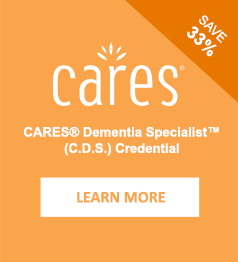Dementia affects different parts of the brain in different ways, and symptoms don’t follow a set order. Understanding these thinking skills can help you notice the changes and support them better.
If the person you’re caring for can’t put on their sweater without help, it might be because-
• There’s damage to the part of their brain that controls motor skills (for example, they can’t lift their arm into the sleeve).
• They have trouble with perception (for example, they see the sweater as a blanket instead of clothing).
• They have difficulty with judgment (for example, they don’t realize it’s cold and they need a sweater).
What can you do? Sometimes all it takes are some short reminders: “You look cold. This is your sweater. Let’s put it on this arm first.”
Key Functions Affected by Dementia
1. Motor skill:
in dementia some people have problems with coordination, balance, and fine movements, making everyday tasks like walking, dressing, or eating more difficult.
These challenges can lead to clumsiness, instability, and trouble with swallowing or chewing, increasing the risk of falls and making daily routines harder to manage.
2. Perception:
Perception issues in dementia involve difficulty recognizing familiar objects, not due to vision problems, but because of brain impairment in interpreting what is seen. And sometimes they may misinterpret common objects, like mistaking a black carpet for a hole or a glossy floor for water. Naming objects in their environment can help them recognize and understand what they are seeing.
3. Language:
This problem mostly starts with subtle word-finding difficulties, similar to the common ‘tip-of-the-tongue’ feeling. These dementia speech problems become more frequent as dementia progresses. While word usage becomes harder, the emotional meaning behind what is said remains intact. Focus on their emotions—whether they feel pain, insecurity, or discomfort—using tone and body language to understand their message.
4. Attention:
Attention issues in dementia make it difficult to focus on a task or conversation, as distractions pull attention away easily. And they experience “tunnel vision,” focusing on one thing at a time while everything else fades. To help you can minimize distractions and guide them back to the task or conversation.
5. Memory:
Like it sounds. Dementia memory problems affect the person’s ability to recall personal experiences, details, and past routines. To support them, you should focus on asking about familiar topics like past work or where they went to school. This helps them feel secure and maintain a sense of identity.
6. Judgment:
Judgment difficulties in dementia occur due to issues with memory, language, and reasoning, making it harder for individuals to make decisions or understand situations. To provide clear and simple choices to help with decision-making, such as “bath in the morning or evening,” avoiding broad or open-ended questions.
7. Abstract thinking:
makes it difficult to grasp concepts like time, sarcasm, or figurative expressions that require interpretation beyond their literal meaning. With this problem communication should be straightforward, avoiding sarcasm, slang, and abstract expressions to ensure clarity.
CARES Tip
Dementia affects each person differently, leading to varying levels of memory, thinking, and behavior changes. Alongside cognitive decline, physical and social abilities may also be impacted. However, it’s important to remember that these changes are only part of the person. Focus on their remaining strengths rather than what has been lost to support their dignity and well-being.
Take advantage of our limited-time offer! Enjoy exclusive deals tailored for you. Contact us today!
Save 15% on all CARES Dementia Certifications—just use the purchase code “CDS15PROMO” at checkout.
Start now! Visit www.hcinteractive.com/5StepDemo for free access to Module 1!

